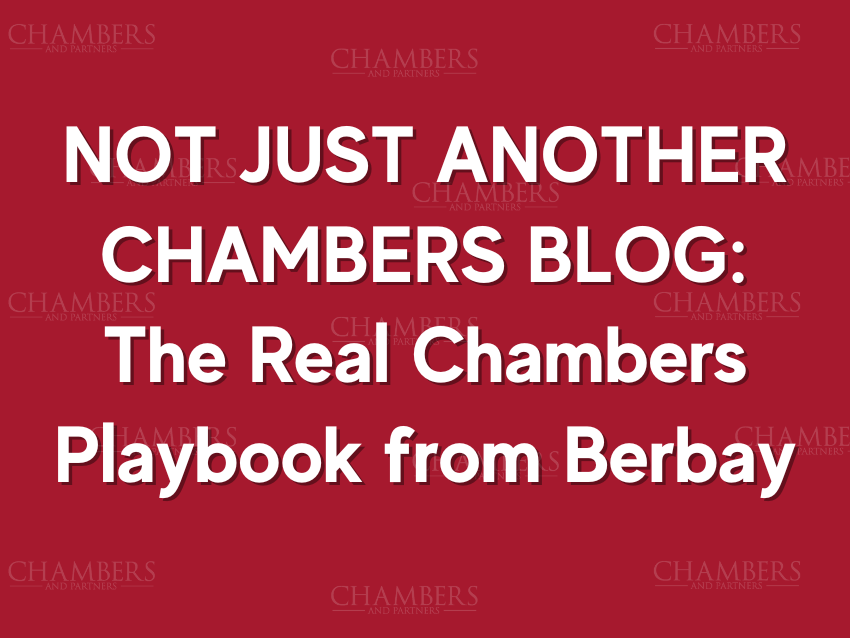By: Sharon Berman
Published: The Recorder
Pricing is an integral component of marketing, but only recently have law firms begun to realize its vital role in marketing and business development. Setting and getting your professional fees encompasses a range of qualitative and quantitative factors all of which have never been under such scrutiny. Consequently, in today’s economic environment, lawyers find themselves in an uncomfortable and unfamiliar position when they discuss and work out these all-important fee agreements.
Recently, a group of law firm marketers, along with pricing and finance specialists met to discuss the changing nature of the market for professional fees as well as how to market them. Some of the key points that emerged from the discussion were the importance of negotiating skills, planning, and defining and communicating value—both the value you bring to the prospect and how the prospect perceives value in general.
A very successful litigator once intimated that she was a great advocate on behalf of her clients but felt nowhere near as confident handling contentious situations relating directly to her own life. Many attorneys find themselves in similar situations: They effectively negotiate for their clients, but then seem like different professionals when pushed to discuss and negotiate their own fees. Because the nature of your business is advocacy for your clients, talking about what you charge can put you on the opposite side of that fence—your firm wants one number, and the potential client wants another one.
Most professionals would rather avoid being in this position and therefore do not like these financial discussions. Exacerbating this uncomfortable situation is that your counterpart, in-house counsel, usually has the same background and orientation as you do.
He or she has little or no training or appetite for discussing this and would rather join you in a discussion about sports—or anything else more pleasant. The discomfort both parties generally feel leads them to want fee discussions to be as short and swift as possible. The good news is that there are things you can do to improve the outcome of fee negotiations and make the situation more palatable.
Negotiating has three phases: planning, conducting, and closing. We will presume that you want to approach this as a win-win, collaborative negotiation. The foundation of this process, then, is the first phase, planning; it is the one that you should invest time in yet is often given short shrift.
As you plan, among the first things you want to ascertain is how the prospect defines value, not in how you think they define it. To do this, encourage them to describe it to you in their own words. You may need to give him time to think about it and revisit it because very often they have not considered it before. Discussing value also allows you to nudge aside dollars and cents and talk about what lies beneath. In terms of value, clients frequently are pursuing risk reduction. They want certainty and the ability to predict and control cost. Also, different practices will define value differently—project finance compared with labor and employment, for instance—which can be difficult to quantify.
During the planning stage, you should ask a lot of questions. Talk to your finance people and inquire about financial arrangements that demonstrate creativity and flexibility and allow you to do the work profitably. Ask the prospect about budget, timing, decision-makers, process, and any additional information that can help your firm make a sound offer. Clients say that they are often surprised by lawyers’ lack of questions when it comes to negotiating fees and, so welcome this conversation.
The nature of how you communicate with the prospect during the planning phase depends on whether you have done or are currently doing work for the client, whether this is a cold response to an RFP, or whether you are on the defensive by being pressured to reduce your fees. Some relationships are easier to navigate than others.
To aid in this, it is important to create a strategy for how you will conduct the negotiation process. Skipping this step can sabotage whatever strength in your position you have established up until now. Before you begin the discussion, you need to determine how flexible you can be, for instance, what kind of price and other concessions you can make. Not having these points clear In your mind before you start negotiating may leave you remorseful afterward for what you agreed to on the fly. Be prepared to answer such questions as how you arrived at your price, why you approached it in the way you have, and why you are prepared to make whatever concessions you’ve put on the table. Once you present your proposal, create a space for the other side to respond by not saying anything — just listen.
In addition to listening more than speaking, you also want to be open to changing your perspective if you hear something that makes you rethink your approach regarding your proposal. This does not mean you need to spontaneously refigure things; you can always tell the prospect that you need to think it over and respond to him later.
Negotiations are an exchange of information. Plan to begin by stating your assumptions, including reconfirming what the prospect sees as value. Because the prospect may not be thinking in terms of value, you may need to draw additional information out of him. Be certain you also know what information you do not want to offer your counterpart. For example, if you are making greater concessions than you otherwise might because you have staff who are not busy, you may want to offer that information, but couch it differently so as not to undermine your position.
As you prepare, it is important to understand what your firm excels at so that you know what business to walk away from. Along the same lines, if the prospect has all the negotiating power, that is a red flag. As hard as it can sometimes be to walk away from business, you may be putting your business at risk if you lock yourself into a position which may become untenable.
Another aspect of the negotiation to consider as you plan is the scope of what you are negotiating. It may be that the agreement covers routine and predictable work and that you agree to discuss pricing other work as it arises. This project work often warrants higher fees. It also gives you ongoing reasons to talk with your client and continue to build the relationship.
The initial or central negotiating sessions should ideally be done in person. You can fine-tune the agreement via Skype or email if you have the firm foundation of the in-person session.
Be prepared to close your negotiation on a strong note, for example, saying, “It seems that we’re in agreement. When do we start?” Ask the tough questions. Courage and fearlessness are attractive to all professionals and can give you the advantage.
The most successful lawyers are those who do not shy away from uncomfortable conversations involving professional fees but who develop skills to make them bridge-builders. How you handle this subject’s sensitive and sometimes uncomfortable areas is a marketing differentiator and contributes to the believability of your own branding.
Since your marketing tactics are designed to ultimately generate leads and give you an opportunity to be in front prospects, your ability to effectively discuss pricing can make the difference between a tremendous return on your marketing investment or a series of frustrating losses.
It is critical to remember that the clients you want to work with, including their procurement professionals, do not want the firm with the lowest fees; they want value for fees and they want reasonable fees. Addressing the subject directly, investing time in planning, conducting the negotiation, and then finishing strong, will give you the competitive edge.


